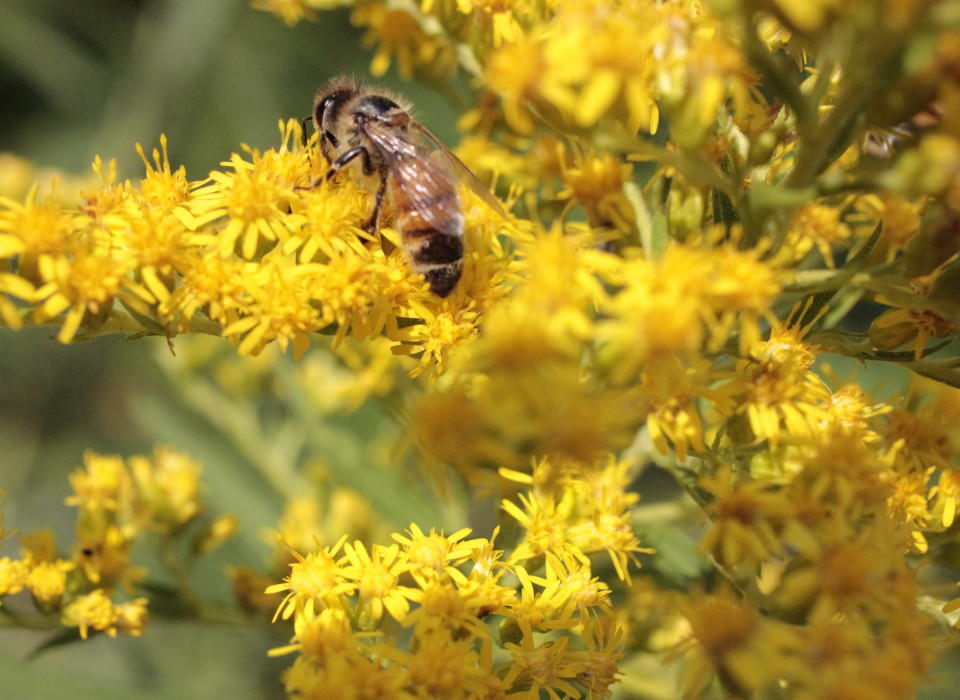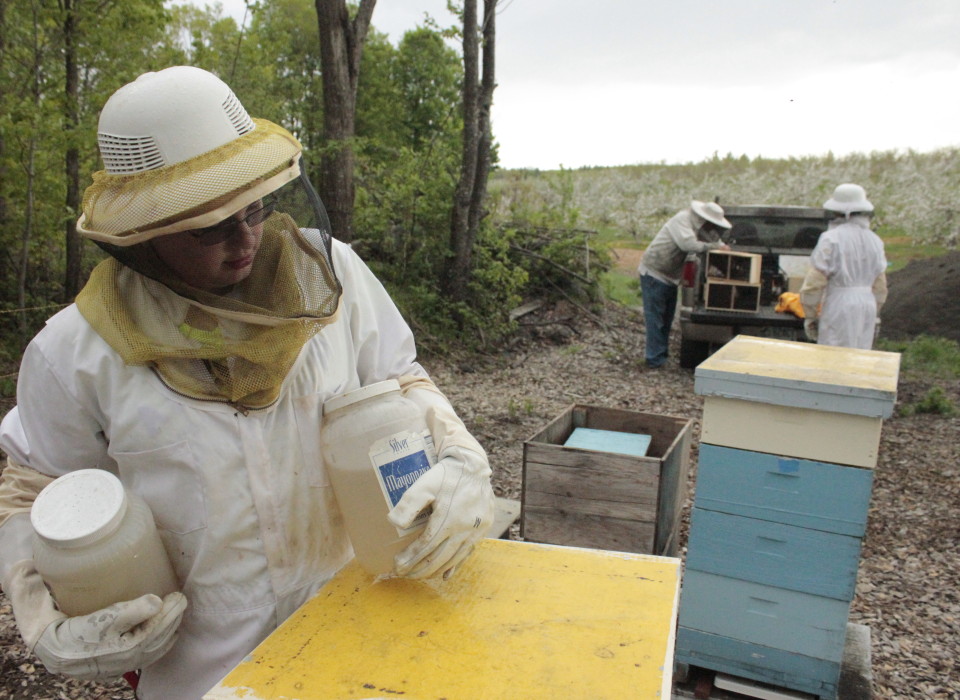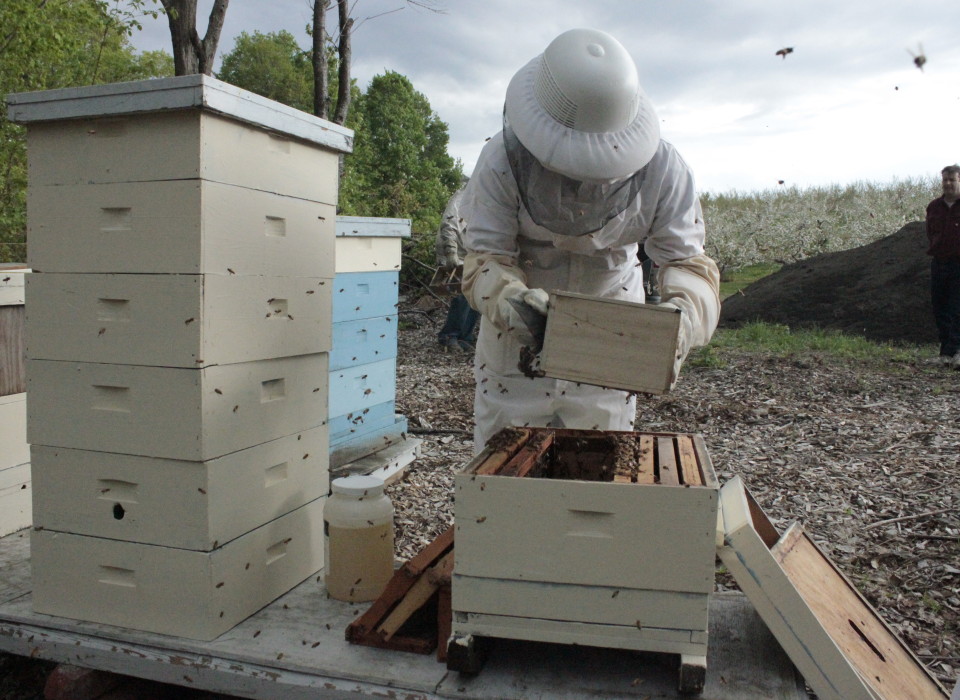Although the honey bee is typically what comes to mind when thinking about pollinators, there are lots of native insects doing their part to produce our food as well. Bumble bees, carpenter bees, leaf cutter bees, and mason bees are just some of New Hampshire’s native bees. Distinct from social bees like the honey bee, carpenter and mason bees are two examples of solitary bees that don’t form colonies. Instead, they form individual nests utilizing wood or mud and water respectively. UNH Cooperative Extension Field Specialist George Hamilton works extensively with Hillsborough County growers. “They rely on [native pollinators] more than they even know.” Hamilton said. Specifically, Hamilton says, the squash bee is one of the, “unsung and unseen heroes” pollinating cucurbits like squash and pumpkins. UNH assistant professor and researcher Sandra Rehan estimates that there could be up to 250 bee species in New Hampshire. She and a team at the New Hampshire Agricultural Experiment Station at UNH are conducting research monitoring native bee populations and their habitat with hopes of informing farmers and policy makers with how best to promote health and productivity of native pollinators. There they have constructed a ‘Bee Hotel’ with different features to attract specific bees. You will also find butterflies, moths, beetles, and even flies pollinating crops here in New Hampshire.
New Hampshire Farm Bureau Federation
The Voice of Agriculture




